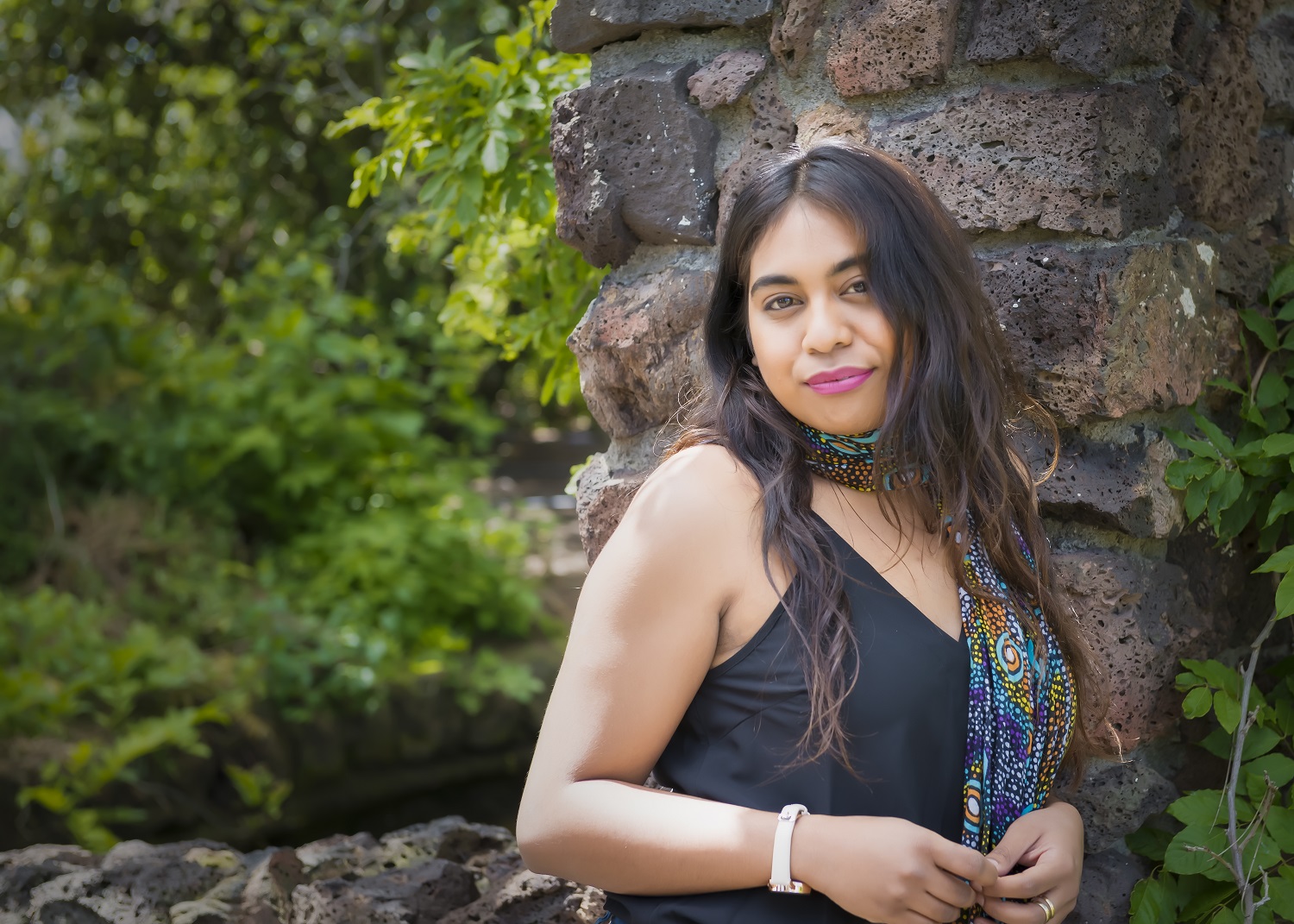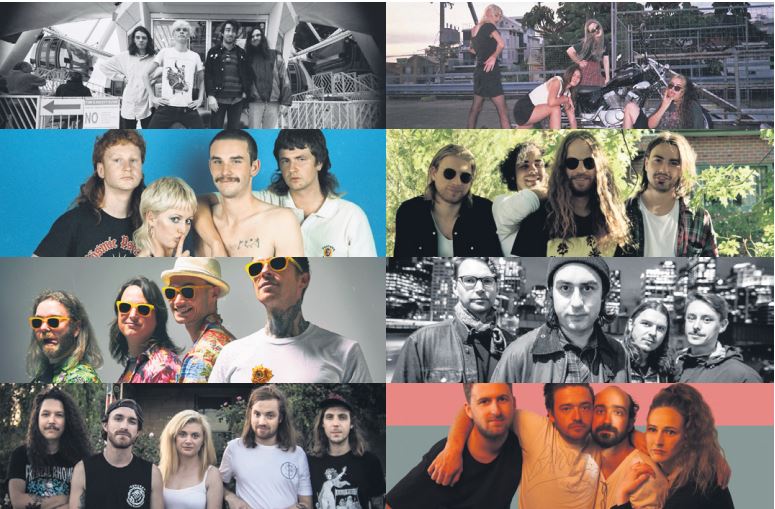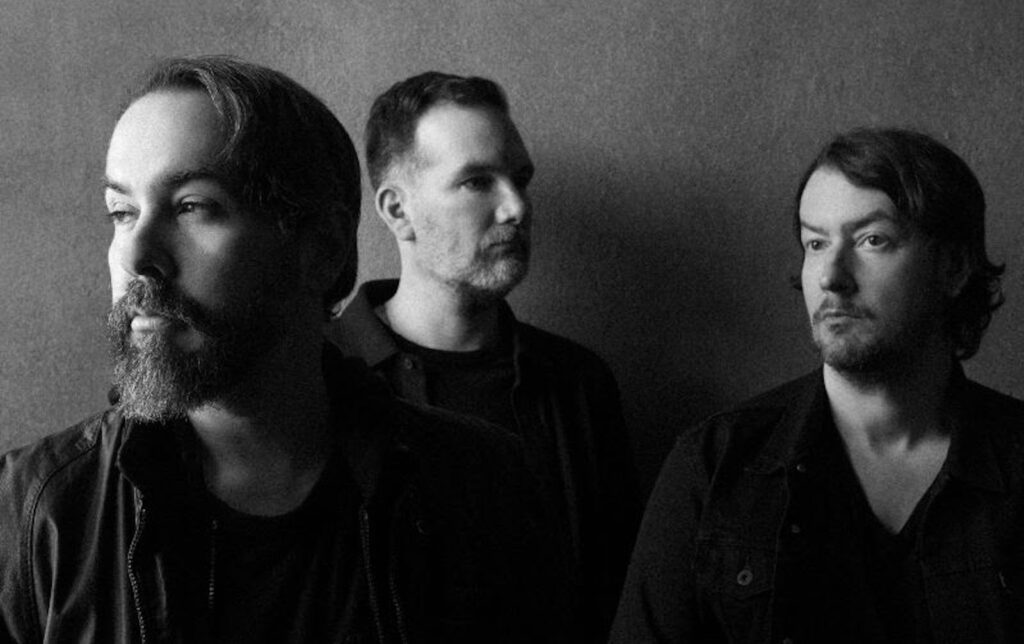Emily Wurramara is a proud Aboriginal woman from Groote Eylandt, NT. A gifted songwriter with an angelic voice, her music evokes vivid recollections of the seaside and the landscapes in which she grew up. She’s fluent across the languages of English and music, but it’s her mother-tongue Anindilyakwa, that feels most resonant, most connected to her soul.
Her latest single ‘Ngarrukwujenam’, is entirely sung in her first language, and when asked what it’s like to hit the notes at home, her voice enlivens. “I feel more powerful as a female, and as a woman,” she says. “To be able to have a voice, and a perspective that I can speak on, that’s something I’m really passionate about.”
Her upcoming album Milyakburra is a celebration of home, community, culture, friends and family. And lingering on any of these topics has her exuding a swathe of pride. You sense though too, the immense duty she feels at maintaining her culture, her language, and engaging people who perhaps haven’t heard it before.
“It’s super important. Language is such an important subject for where I’m from, it’s important for me to archive that for future generations,” she says. “And I couldn’t have thought to do it any better than to do it with music. Melodies, they’re catchy, they get stuck in people’s heads. It’s a beautiful way to share language.
“Music was a great way for me to open myself up to my language, And explore deeper depths to it,” she says. “When I was younger, I felt embarrassed to speak it. No one else spoke it, or their own language, so I thought I came from an alien-land or something.”
Wurramara laughs at the thought, and it’s fitting, given how she now exudes confidence and pride. She knows herself, in that quietly confident way, and speaks loudest through her gestures and music.
There’s also curiosity about her that informs her discussion about music production. It’s a good faculty to possess for any musician, and seems likely to always have her exploring new musical angles and collaborations.
“Working with David Bridie, I really wanted to utilise the instruments to give out that feeling of belonging and home,” she says. “And with the whole song it feels really grounded. He did a really fantastic job of helping bring out the message, bringing out the theme,” Wurramara says.
“It was really interesting to step out of my boundaries and give it a go. Because a lot of the songs use very jazzy chords. I wasn’t used to those harmonies and arrangement of melodies. But we worked around it, and it worked out really well.”
Wurramara has made the decision to release her single at the start of January 26th week. A significant gesture because of what it represents to Aboriginal and Torres Strait Islander people. It’s divisiveness, the arguments it conjures, and the severe sense of mourning and loss of culture it represents.
“There’s a lot of memories. And a lot of stories that are brought up that are shocking. Recollection of all the stuff that’s happened. Though by being there on the day, it shows strength, being strengthened by those around you,” she says.
Wurramara is also playing at Survival Day Festival in Nimbin on the day, something she feels a great sense of duty to perform at.
“On the day it’s super important for me to make an appearance in the community, to be there, to be present. Because it’s something that I’m really passionate about, it’s such a vital day. An important day of mourning for Aboriginal and Torres Strait Islander people. And just having the presence, being there showing love, I think that’s important.”
When asked, if coming from a position of ignorance about Aboriginal people, and the mourning of Invasion Day, what she’d like you to understand about her by the set’s end, her wish is simple.
“I’d want them to understand what my message is. I’m trying to be a role model for young Indigenous women. Being a young mum, it’s made my impact a little bit bigger, and my message a little louder,” she says.
“But I definitely want them to just listen. That’s the most important thing. Opening your ears, opening your mind and listening.”







